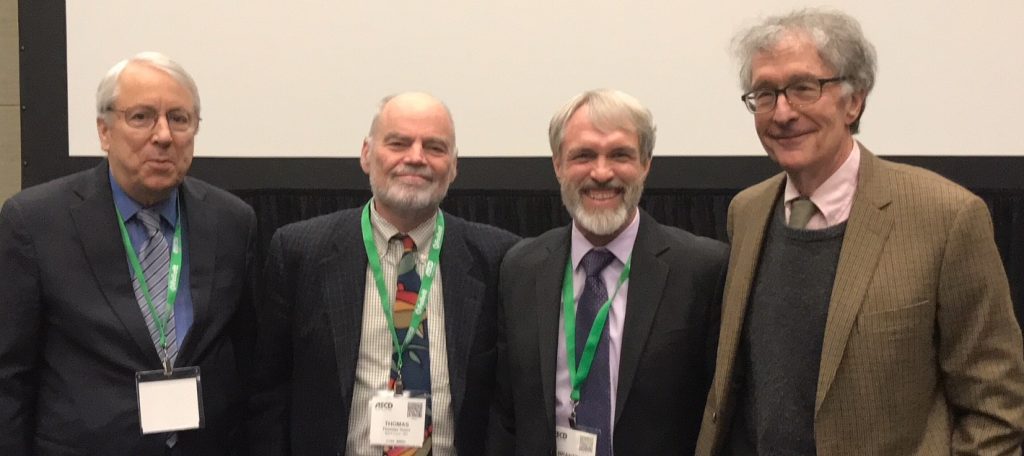Multiple Intelligences Newsletter, Vol 26, No 6
May 21, 2018
Hi MI Fans,
Last month featured a really interesting presentation at the ASCD Annual Conference, “MI After 35 Years.” Yes, it’s been 35 years since Howard Gardner’s book, Frames Of Mind, changed how we view intelligence. Recognizing that intelligence is problem-solving, Garner identified the many different ways – the multiple intelligences – that people use to solve problems. Real-world problems, Gardner knew, are not limited to multiple-choice questions. Philosophically, understanding MI means that intelligence is not uni-dimensional and that each person possesses an array of intelligences. Pragmatically, understanding MI, we don’t ask “Who’s the smartest student in the class?” Rather, we ask, “How is each of these students smart?”
Branton Shearer, Thomas Armstrong, and I each spoke about MI from our perspectives, and then we were joined by Howard Gardner, who fielded questions from the audience and facilitated a discussion. I am biased, I know, but it was a great affirmation of the power of MI.

L to R: Armstrong, Hoerr, Shearer, Gardner.
Branton Shearer, creator of the MIDAS, an MI assessment tool, shared his experiences from administering the survey and seeing its utility as a tool to aid in learning. Thomas Armstrong, author of Multiple Intelligences in the Classroom, talked about how MI is research-based yet many psychometricians find it difficult to grasp. For sure, change is hard! I spoke from the perspective of leading an MI school for 30 years. I saw the power of MI each day, I said, in students’ learning and teachers’ teaching.
When Howard Gardner spoke, he noted that MI encompasses both individualization and pluralization. In using MI, we can individualize how we teach; we are able to teach to students in the ways that they learn. And MI pluralizes because it offers a variety of ways for students to learn and to show what they know. In using MI, we learn more about our students and we are better able to serve them.
This enthusiasm about MI – both from the four of us who presented as well as the 130+ in the audience – was evident. This causes one to wonder, “What happened to MI? and “Why aren’t there more MI schools?” (I used to hear that a lot when I lead New City School.) Branton Shearer offers a very good explanation of this in the following article!
I hope that as you are planning your summer, you’re including plans to spend some time doing nothing productive! Relaxing helps fill our energy tanks, and August will be here before you know it.
What are your reactions to what I have said, what might you offer for this MI newsletter, or what questions do you have? I’d like to hear from you.
